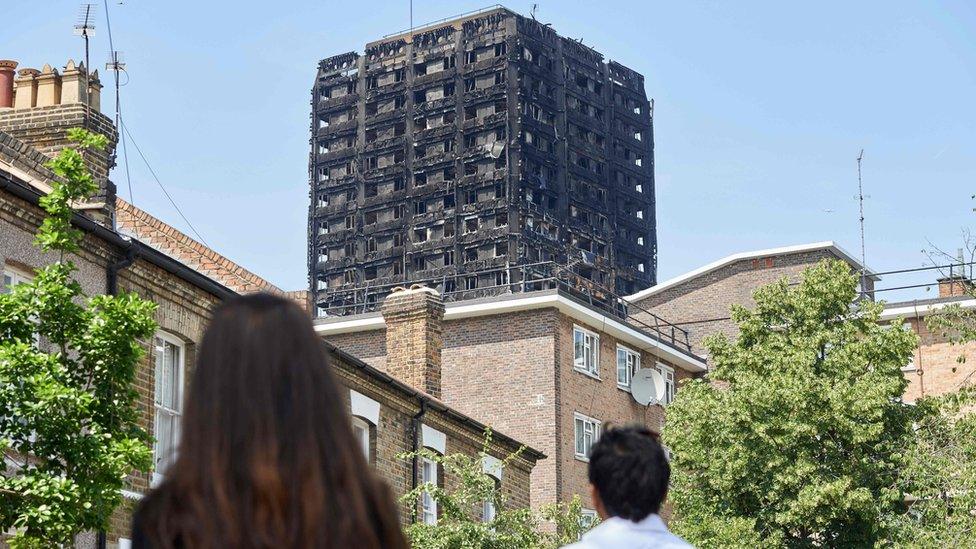Grenfell Tower: Government will consult on cladding ban
- Published
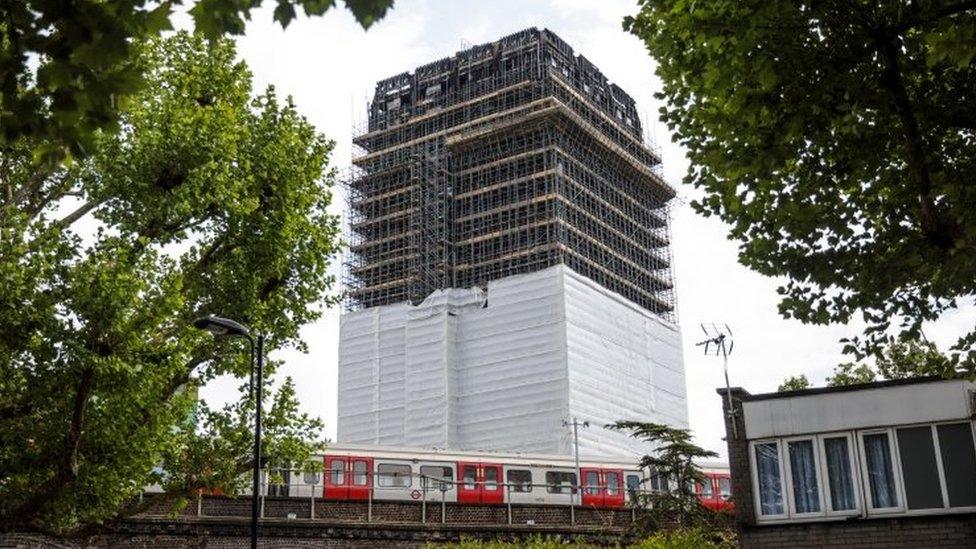
There will be a consultation on banning inflammable cladding on high-rise buildings, the government says, despite a review into the Grenfell tragedy not recommending such a move.
Housing Secretary James Brokenshire announced the consultation "having listened carefully" to concerns.
Earlier, a government-commissioned building regulations review stopped short of proposing a ban - a move criticised by some Grenfell survivors.
Labour MPs called for an immediate ban.
Architects, building firms and Grenfell survivors had backed laws forbidding the use of combustible materials in tower blocks.
Inflammable cladding is thought to have contributed to the rapid spread of fire in west London's Grenfell Tower last June.
A total of 72 people died as a result of the blaze, the judge-led inquiry has said. This includes Maria Del Pilar Burton, 74, who died in January. She had been in hospital since she was rescued from the 19th floor.
A subsequent survey identified hundreds of other buildings where cladding failed safety tests.
The Royal Institute of British Architects called for a ban on inflammable cladding, as well as a requirement for sprinklers to be fitted, and a second means of escape for high-rise residential buildings.
Announcing the consultation, Mr Brokenshire said: "We must create a culture that truly puts people and their safety first, that inspires confidence and, yes, rebuilds public trust."
He said the building regulations review, and the changes that will come from it, were "important first steps, helping us ensure that when we say 'never again', we mean it".
Labour's shadow housing secretary John Healey responded, saying: "Don't consult on it, do it."
Shahin Sadafi, chairman of Grenfell United, which represents survivors and the bereaved, said he was "disappointed" there was no immediate ban.
Earlier, a government-commissioned independent report into building regulations called for a "radical rethink" of the safety system, but stopped short of recommending an outright ban on inflammable cladding.
Dame Judith Hackitt tells Today that the building regulation system is broken
The report's author, Dame Judith Hackitt, said indifference and ignorance had led to cost being prioritised over safety and called for regulators to "come together" to ensure building safety.
She also recommended incentives for the right behaviour and tougher penalties for those who breach the rules.
Appearing before the Housing, Communities and Local Government select committee, Dame Judith said she supported Mr Brokenshire's announcement and it was "complementary" to her review, "but on its own it will be insufficient".
"Simply banning something from happening is no guarantee of compliance," she said.
"If people attach too much reliance upon banning activities and particular materials as being a solution to this problem it will create a false sense of security."
She told MPs that she had not known Mr Brokenshire had planned to announce a consultation.
The prime minister's spokesman said the current regulatory system was not "fit for purpose" and the government was committed to making the necessary changes.
'She didn't listen'
Grenfell United and opposition MPs criticised the review's recommendations.
Mr Sadafi said his group was "disappointed and saddened that she (Dame Judith) she didn't listen to us and she didn't listen to other experts".
Diane Abbott: "The 71 people who died were not a 'technical issue' and you need to step up."
Shadow housing minister Sarah Jones told the BBC that the report was a "huge wasted opportunity" and that the recommendations did not go far enough.
Labour MP and Grenfell campaigner David Lammy said it was "unfathomable" that the review had not recommended a ban on combustible materials.
The independent review, external looked into regulations around the design, construction and management of buildings in relation to fire safety.
The final 156-page report found that:
Roles and responsibilities for building safety are unclear
Regulations and guidance are "ambiguous and inconsistent" and are "misunderstood and misinterpreted"
There is ignorance about the rules governing the industry
The process that drives compliance with the regulations are "weak and complex"
Competence (of people in the system) is "patchy"
The process for testing and certifying products is "disjointed, confusing, unhelpful and lacking any sort of transparency"
Product testing and marketing is "opaque and insufficient"
Residents' voices go unheard
Dame Judith - a senior engineer who used to chair the Health and Safety Executive - said these issues "have helped to create a cultural issue across the sector, which can be described as a 'race to the bottom', caused either through indifference, or because the system does not facilitate good practice".
Her appointment to lead the review had been met with some criticism due to her former role as director of the Energy Saving Trust. The organisation promotes insulation containing a foam known as polyisocyanurate (PIR), blamed for fuelling the fire at Grenfell.
But the government defended Dame Judith as "an independent and authoritative voice".
Her review is separate to the judge-led inquiry into the Grenfell fire,, external which will start taking evidence on 21 May.
- Published16 May 2018
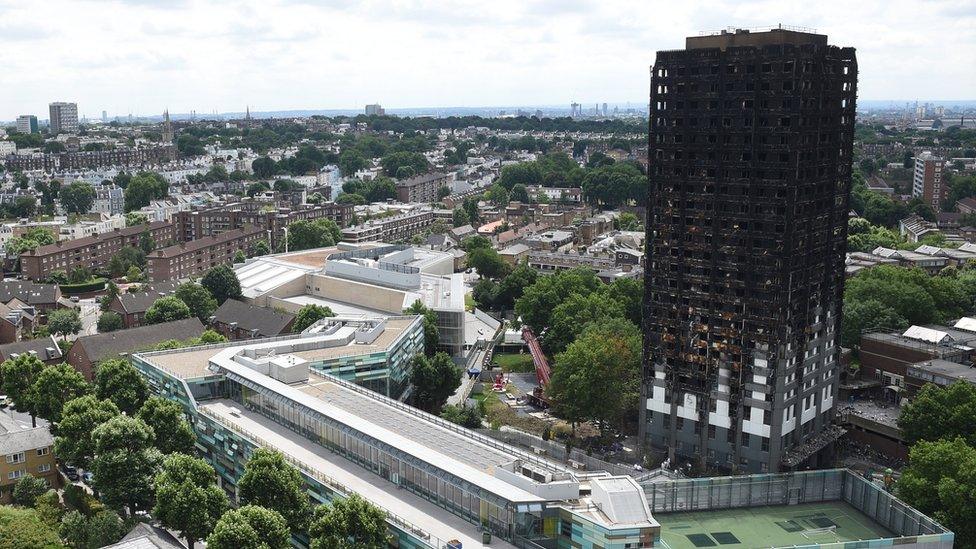
- Published29 October 2019
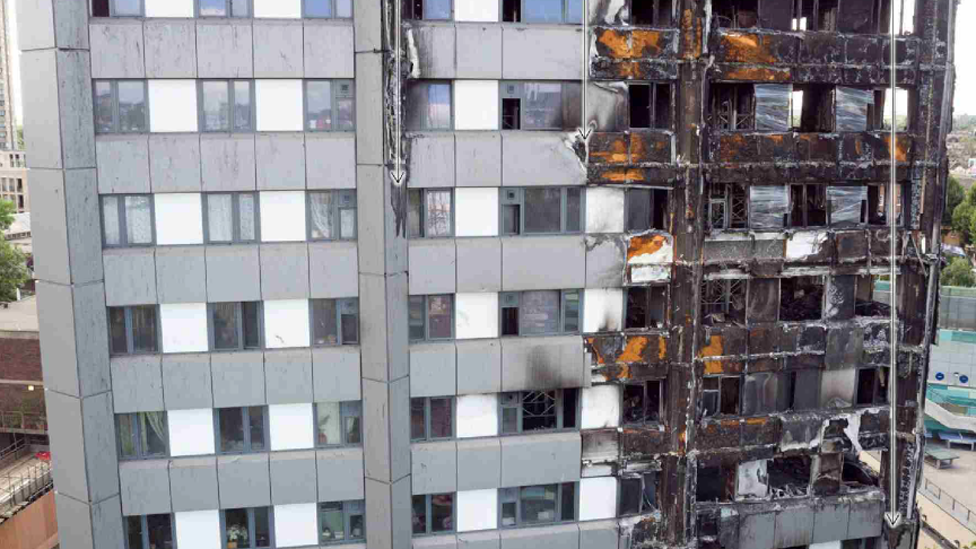
- Published30 May 2018
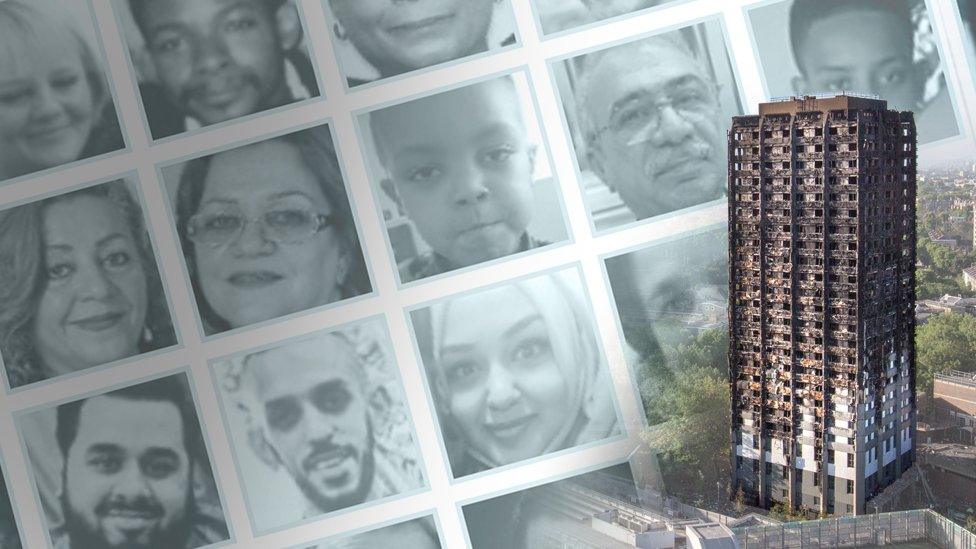
- Published21 August 2017
- Published18 December 2017
